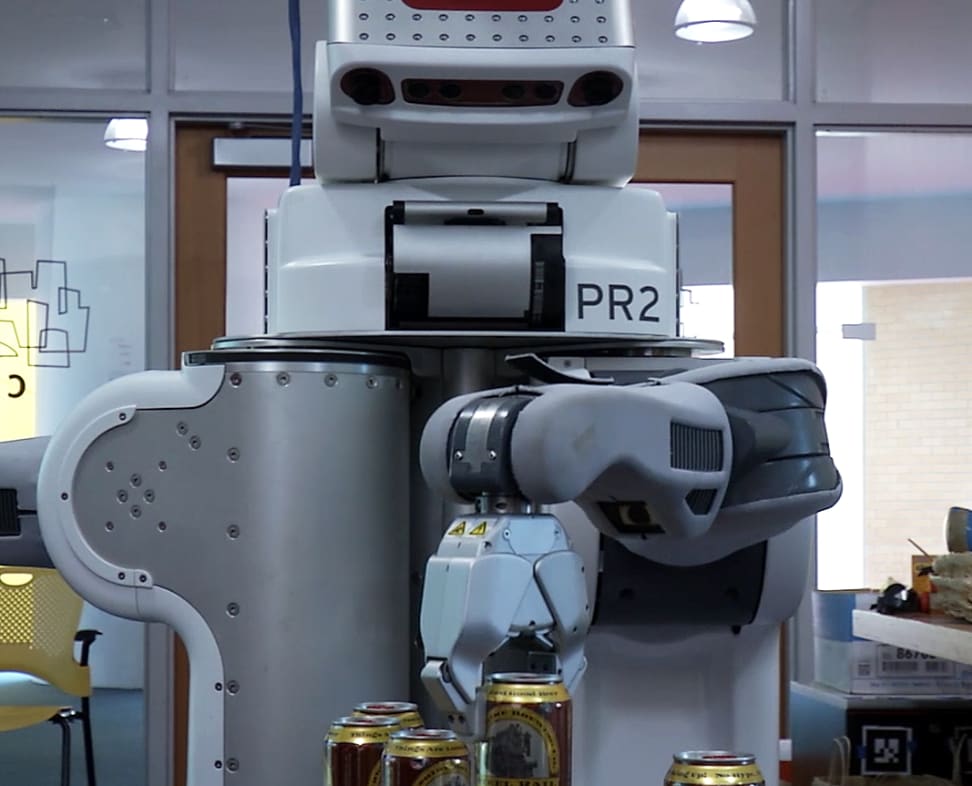Products are chosen independently by our editors. Purchases made through our links may earn us a commission.
Good news, everybody: The future has arrived. A group of mad geniuses at MIT have unveiled a team of robots that can take orders and retrieve drinks—including, yes, beer. The research was recently presented at the recent Robotics Systems and Science Conference in Rome.
I know what you're probably thinking: "Okay, so what? Wasn't there a toy robot in the 80s that could do the exact same thing?"
But these robots aren't toys—they're actually better at serving up cold ones than their human equivalents. The real breakthrough here is in how the robots are able to work together to complete tasks.
The developers, working out of MIT's Computer Science and Artificial Intelligence Laboratory (CSAIL), adopted a "swarm" approach to create a smarter, more collaborative catering platform. The individual bots are built to work independently, and to adapt to changing environmental conditions. For example, while one robot is taking an order from a customer, another cracks open a beer, and another actually delivers it. These roles shift automatically, depending on changing circumstances.
{{amazon name="The Beer Bible", asin="0761168117", align="right"}} The intelligent machines are equipped to handle mistakes like dropping a bottle or picking up the wrong one, or to work through miscommunication caused by the kind of rowdiness you find in bars. The goal is to drastically improve upon the efficiency of food and beverage service, while also accounting for the chaotic nature of bars and restaurants.
"You'd like to be able to just tell one robot to go to the first room and one to get the beverage without having to walk them through every move in the process," said MIT graduate student Ariel Anders in a statement. "This method folds in that level of flexibility."
One of the major challenges in robotics is getting machines to autonomously adapt to real-world situations. As Anders explained, this latest project forces research to work with "more complex planning algorithms that allow the robots to engage in higher-level reasoning about their location, status, and behavior."
So that's neat, but is that really all these super efficient robots are good for? Serving beer?
No, of course not. The folks at CSAIL explained how the computer models could also be deployed in disaster relief, hospital operations, and shipping logistics. As one researcher told BetaBoston, "the beer problem is really emblematic of all these real-world problems."
Related Video
{{brightcove '4315687086001'}}

